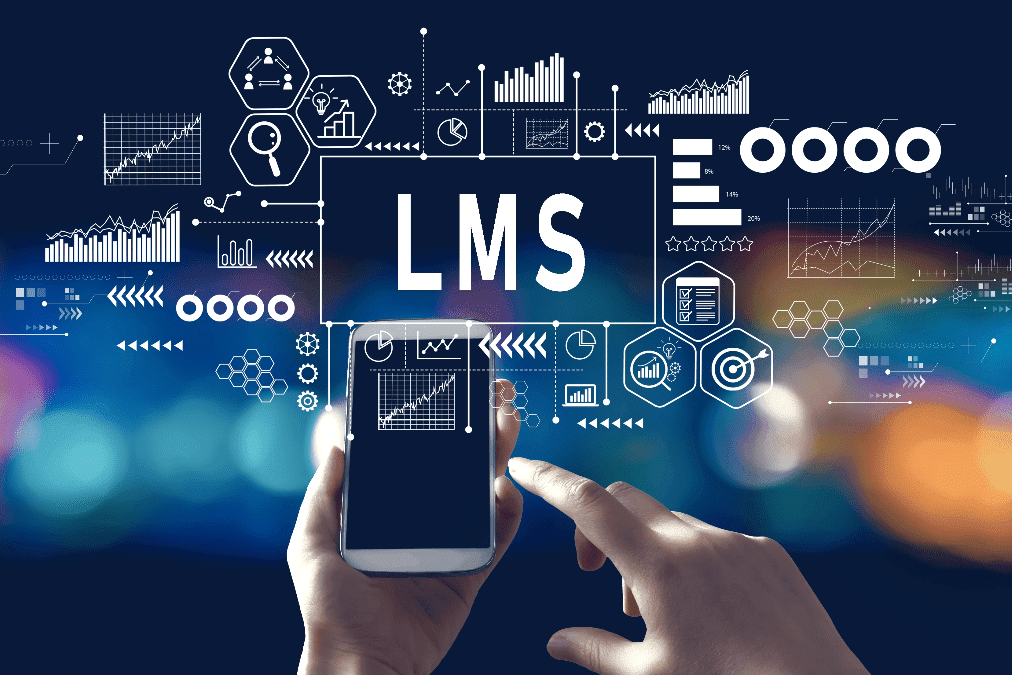In an era where knowledge is power, the right approach to product training can be the difference between mediocrity and excellence. As reported by Statista, the average number of software as a service (SaaS) applications employed by companies soared to over 100 in 2021. This trend, driven not by IT departments but by the very departments that use the software, signals a sustained growth trajectory. With this proliferation of software comes an escalating need for comprehensive product training, a vital process to educate users on software features and maximize their utility.
In this context, Learning Management Systems (LMS) emerge as more than just educational platforms; they are pivotal in reshaping how product training is delivered and received. Here we delve into five transformative ways an LMS elevates product training from basic onboarding to creating empowered brand advocates.
Product Training: A Competitive Necessity in a Crowded Market
Product training offers multifaceted benefits, serving as a key differentiator in a crowded marketplace. It’s an essential strategy for companies, particularly new entrants, to ensure their product or service is not only adopted but also preferred by customers. In a scenario where the competition is intensifying, companies that neglect the importance of engaging their users with effective product training risk falling behind.
Moreover, users nowadays anticipate product training as part of their software purchase experience. Vendors who incorporate product training into their offerings gain leverage in their competitive positioning. Such enablement has proven to bolster customer retention and engagement, among other benefits. In this context, utilizing a Learning Management System (LMS) emerges as one of the most effective methods to deliver this essential training.
Enhancing the Onboarding Experience
The initial onboarding process sets the tone for a user’s experience with a new software. An LMS revolutionizes this first step, providing a structured, engaging, and user-friendly introduction to the product. This approach ensures that users are not only acquainted with the product but are also motivated and equipped to utilize it to its full potential.
Faster Time to Adoption: Streamlining the Learning Curve
The swift adoption of software is essential in today’s fast-paced business environment. An LMS facilitates this by transforming complex product features into accessible, engaging learning modules. This accelerates the learning process, enabling users to quickly become proficient with the software, an aspect critical for maintaining productivity and competitive advantage.
Cultivating More Engaged Users: Beyond Just Features
Engagement extends beyond mere feature comprehension. The Manifest underscores the importance of a customer onboarding strategy for maintaining satisfied customers and generating long-term value. Their survey revealed that 46% of users are more likely to increase their investments in products or services following successful onboarding experiences. This highlights the crucial role of an LMS in not just introducing features, but in fostering a deeper, more meaningful connection with the product.
An LMS provides a dynamic platform for continuous learning, offering evolving courses that adapt to both the product and market changes. By incorporating interactive elements such as social learning, gamification, and real-time feedback, an LMS ensures that the learning experience is not just informative, but also engaging and relevant. This approach nurtures a more profound user engagement, leading to increased investment and loyalty towards the product.
Amplifying Product Advocacy: Turning Users into Brand Ambassadors
An LMS transcends traditional education boundaries; it creates a connection between users and the product. By personalizing learning experiences and acknowledging user achievements, an LMS helps foster a strong bond between the user and the product. This emotional connection is key in transforming users into active brand ambassadors.
Measurable Outcomes: Tracking & Refining Training Modules
The capability of an LMS to provide insightful analytics and tracking is a game-changer. It enables the continuous refinement of training content based on user performance and feedback, ensuring that it remains effective, relevant, and aligned with evolving user
In an age where software integration is a critical component of business strategy, the role of an LMS in product training becomes increasingly significant. From enhancing the onboarding experience to fostering a community of brand advocates, the transformative impact of an LMS in product training is profound. As the demand for software education grows, LMS stands as an indispensable tool in ensuring that users are not just well-trained but are empowered advocates of the software they use.



